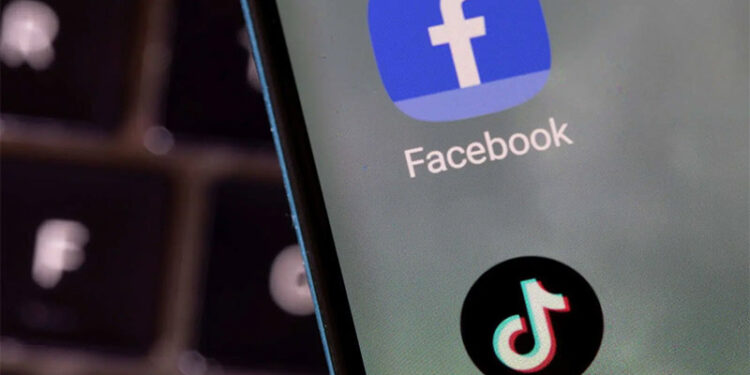The social networks are limiting access to RT and Sputnik across the EU.
Facebook, YouTube and other social networks are restricting access to Russian state-controlled media outlets RT and Sputnik across Europe, amid calls to crack down on disinformation. The move will likely heighten tensions between some of the world’s most popular social networks and the Russian government.
Facebook’s parent company, Meta, said Monday that it will limit the accessibility of Sputnik and RT across the European Union.
“We have received requests from a number of governments and the EU to take further steps in relation to Russian state-controlled media. Given the exceptional nature of the current situation, we will be restricting access to RT and Sputnik across the EU at this time,” Nick Clegg, who oversees global affairs at Meta and is a former UK deputy prime minister, said in a tweet.
Clegg didn’t respond to questions on Twitter about what the restrictions entail, how many requests Meta has received and from which governments or how many Facebook users will be impacted by these restrictions. Clegg also didn’t say when these restrictions would start. RT’s Facebook page has 7.4 million followers and Sputnik’s Facebook page has 1.4 million followers. The media outlets are also on Facebook-owned Instagram, a photo and video service. RT has 839,000 followers on Instagram and Sputnik has 116,000 followers.
On Tuesday, Google said in a post on Twitter that it would block YouTube channels connected to RT and Sputnik across Europe.
“Due to the ongoing war in Ukraine, we’re blocking YouTube channels connected to RT and Sputnik across Europe, effective immediately,” reads a tweet from the official Google Europe account. “It’ll take time for our systems to fully ramp up. Our teams continue to monitor the situation around the clock to take swift action.”
Google, the video giant’s parent company, didn’t immediately respond to questions on how many YouTube channels would be blocked. RT’s main channel on YouTube has more than 4.6 million subscribers, while Sputnik has over 300,000 subscribers.
Facebook’s move came a day after Meta announced it had restricted access to several accounts, including from Russian state-controlled media, in Ukraine after a request from the government there. Meta has been facing more pressure to take action against these media outlets for spreading propaganda and false claims after Russia’s invasion of Ukraine.
On Sunday, European Commission President Ursula von der Leyen said in a tweet that the EU’s executive branch is developing tools to ban “toxic and harmful disinformation” published by RT and Sputnik and their subsidiaries. The EU is an economic and political union of 27 countries, including France, Germany and Spain.
Following Facebook’s move on Tuesday, RT took issue with unspecified comments from European government officials and actions by social media platforms, with its deputy editor-in-chief saying in a statement that no one had pointed to specific evidence of falsehoods appearing on its site during the Ukraine crisis. In its own statement, Sputnik’s press arm characterized the restrictions as an “information war against the Russian media.”
RT and Sputnik are on other social media sites, including Twitter and TikTok. A spokeswoman for TikTok said users in the EU won’t see content from RT’s and Sputnik’s accounts. Twitter started labeling state-affiliated media, but a spokeswoman said the company had “nothing to share at this time” when asked if the company was also planning to restrict RT and Sputnik.
The rare move by Meta also raises questions about whether Russia will further restrict access to Facebook and Instagram. Ukrainians have put pressure on Facebook to remove access to the main social network and Instagram in Russia, but Clegg said Sunday those platforms are also being used by protesters and as a source of independent information. “The Russian Government is already throttling our platform to prevent these activities. We believe turning off our services would silence important expression at a crucial time,” Clegg said in a tweet on Sunday.
Russia said last week that it’s partly restricting access to Facebook after the social network refused to stop fact-checking and labeling content posted on Facebook by four Russian state-owned media organizations. Russia’s telecommunications regulator, Roskomnadzor, alleges Facebook violated “fundamental human rights” by restricting the country’s state-controlled media.
Facebook and YouTube have also been barring ads from Russia state media. Twitter also said last week that it’s temporarily pausing ads in Ukraine and Russia.
On Sunday, Meta also announced that it removed a network of about 40 fake accounts, Pages and Groups on Facebook and Instagram from Russia and Ukraine. Meta said some of these accounts pretended to be news editors and ran fake news websites and published stories that included “claims about the West betraying Ukraine and Ukraine being a failed state.” Meta, which owns Facebook, Instagram, Messenger and WhatsApp, created a special operations center with experts who speak Ukrainian and Russian to help monitor its platform.













